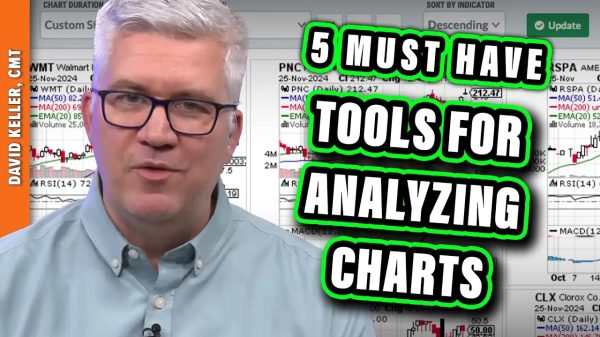Aston Martin Lagonda has claimed the first profit of its turbulent four and half years on the stock market.
The Warwickshire-based company, the only carmaker listed on the London Stock Exchange, said that it turned a £16 million profit in the final trading quarter of 2022. In the course of the previous four years it had racked up cumulative losses of £1.3 billion.
The hopes of long-suffering investors that Aston may finally have turned a corner — having veered from pothole to ditch during numerous debt and equity refinancings that have effectively left it under the control of its executive chairman Lawrence Stroll — had been leaking out in recent months.
The shares, which hit record lows in the autumn, have since been going up through the gears and more than doubled in the past 16 weeks. Yesterday they put on a further 6½p, or 3.2 per cent, closing at 207½p to value the firm at nearly £1.5 billion.
Stroll, a 63-year-old Canadian rag-trade billionaire with an enthusiasm for motor racing, said: “I knew it would take multiple years to build Aston Martin into the world’s most desirable ultra-luxury British performance brand. With the heavy lifting behind us, we are now poised to see the results of this transformation, starting in 2023.”
Helped by the delivery of 36 of its £2.5 million Valkyrie hypercars in the final three months of the year — almost as many as it sold in the rest of 2022 — Aston Martin got into the black in the final quarter as revenues jumped by nearly half as much again from the same period in 2021.
That result came after a much more troubled earlier part of the year as Aston, heavily lossmaking and with debts in danger of spiralling out of control, went through its latest — and largest — refinancing, a £654 million equity fundraising in which the same Saudi Arabian sovereign wealth fund that owns Newcastle United took a 17 per cent stake.
Nearly 40 per cent of Aston Martin’s sales volumes and revenues in 2022 came in the final three months of the year. For the year as a whole it sold 6,412 vehicles, up 4 per cent on 2021 and bringing in revenues 26 per cent higher at £1.38 billion.
The £16 million profit before tax that it made in the last quarter only managed to take the edge off its previous troubles: the group still posted a record loss for the year of £495 million.
That splattering of red ink is on top of the £213 million loss it made in 2021, and deficits of £446 million in 2020 and £119 million in its first full year on the stock market. Even for 2018, the year of its controversially overpriced £4.3 billion flotation, it lost £68 million.
About half of Aston Martin’s total sales for 2022 were of its DBX 4×4, which is built at its offshoot factory in south Wales. Average selling prices for the year, stripping out the supercar specials, was £177,000, a mark-up of 18 per cent on 2021’s price tags.
Before the cost of servicing a net debt pile of £765 million and cash outflows in spending on the development of the next generation of Astons, the company is claiming underlying ebitda — earnings before interest, taxes, depreciation and amortisation — of £190 million for a profit margin of 13 per cent.
The company said that sales volumes would increase by up to 10 per cent to about 7,000 in 2023 and that those profit margins would touch 20 per cent.
Waving away the doubts of many analysts, Stroll said that put Aston Martin firmly on course to meet his longstanding promise of annual revenues sometime between 2024 and 2025 of £2 billion of revenues and £500 million of ebitda on a margin of 25 per cent.
He had previously said that this would be achieved on the back of annual volumes of 10,000 but is now claiming Aston will get to those targets on lower volumes.
This summer Lawrence Stroll, the executive chairman and largest private shareholder in Aston Martin Lagonda, will host an awayday for analysts and motoring journalists at the firm’s home in Warwickshire. What he will be peddling is a car company that has managed not to go bust for the eighth time in its 110-year history, as many thought it would, and instead is unveiling the next generation of sports cars, its first non-supercar plug-in hybrid, due out in 2024, and its first pure electric vehicle, to be launched a year later.
That Aston is committing to such an event suggests Stroll believes it has turned a corner. The stock market appears to think so too: since hitting a record low of 89p in November the shares have risen 135 per cent.
Stroll took control three years ago, saying that by the end of 2025 at the latest the carmaker will be producing 10,000 vehicles a year and bringing in £2 billion of revenues and £500 million of earnings before interest, tax and accounting writedowns. The financials are double what Aston was doing at its float in 2018 on volumes of 6,400. At that time, chief executive Andy Palmer, since ejected, was launching the cash cows — the DBX and the Valkyrie — Stroll is now milking.
What is new is Stroll saying he will reach his targets by making just 8,000 vehicles a year. That is because he is no longer having to discount cars to get rid of backed-up inventory and instead is pushing through annualised price rises of 20 per cent to his money-no-object clientele. In turn, Aston’s gross profit margins will push towards 40 per cent.
Transitioning to zero emissions is reckoned by the industry to be the biggest, costliest project in automotive history. Aston is embarking on that journey even before it is sustainably breaking even. Buckle up.
Read more:
Aston Martin accelerates into the black
























